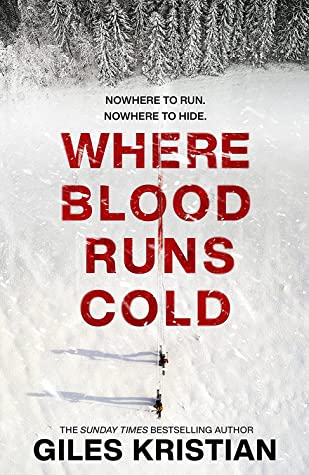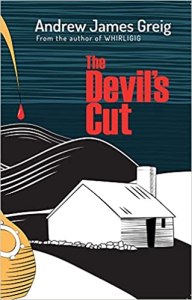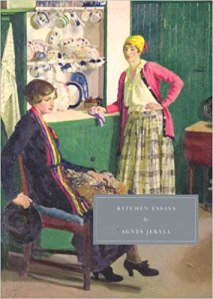
Today’s post is by writer, editor, and book coach Lauren Reynolds.
When I decided to change careers and write for a living, I researched and read everything I could. I attended seminars, writing workshops, and took several courses. I was hungry for information and, in my pursuit, grew so full that I was bursting at the seams—too overloaded to decipher good advice from bad.
One afternoon, while listening to an author discuss her technique of writing longhand, it dawned on me: What works for one writer may not work for another. There was no way I would write an article by hand, let alone an entire manuscript.
That may not sound like a revelation to most, but for me, it was big. I had been elevating expert wisdom above my intuition and, in the process, lost my confidence. Once a self-deprecating and humorous writer, I had become dull in an effort to sound serious. I lost my voice and, inevitably, lost my way.
As a book coach working with writers, I’ve discovered this phenomenon is not unique. Expert advice is valuable, but it’s how you assess it that makes it meaningful and useful. “Write what you know” doesn’t require killing someone if you want to write murder mysteries.
Don’t strain your neck looking to experts perched on a pedestal. It’s natural to place our role models on a pedestal—we all do it. We are blinded by stellar reviews, fortune, and fame. By consuming successful authors’ advice like gospel, writers hope that if they emulate their writing process or techniques, they, too, might achieve similar success.
However, when advice is taken out of context or not carefully evaluated, it can do more harm than good. So consider several factors first.
Advice is often generalized.
What works for Jodi Picoult probably won’t work for Judy Blume, as every writer has their particular methods.
For many writers, revising a first draft requires deleting copious material. For other writers, their first draft looks more like a detailed sketch, and they add more material as they revise.
Some writers swear by writing in the early morning hours, and other writers just plain swear. Some writers binge-write for a few months out of the year and finish a first draft within one season. Other writers write daily, and it takes them a year to complete a first draft.
We look to experts in the hope of unearthing some secret or trick, but unfortunately, there isn’t one.
People have varied resources.
The more successful a writer becomes, the more resources they have.
Stephen King recommends writing 2,000 words a day. Though he credits his wife for much of his success in his book, On Writing, most people don’t recognize this support system allowed him the time to reach that word count. If we all had a wife like Tabitha, perhaps we, too, could eke out 2,000 words per day.
Resources such as time, money, and support are invaluable. A writer who is a full-time parent or works outside the home will have fewer resources to write efficiently than a writer with fewer responsibilities or more significant support.
The final result isn’t the whole story.
While reading a published book, it’s easy to forget that it likely took several drafts to arrive at the polished version. We don’t get to see the frustration the author experienced, the sleepless nights, the manuscript thrown across the room. While some authors may require less effort than others, some struggle just as much as new writers.
Seasoned writers can experience just as many frustrations, doubts, and fears as the rest of us—no one has it all figured out. Sometimes, having one successful book creates a frozen response, in which the author can’t write a second book for fear of producing a less-than-stellar follow-up. Nothing is scarier than reaching the pinnacle of success only to slide down the other side.
Who is an expert?
In the era of TikTok influencers, it’s becoming harder to decipher who really has the experience or knowledge to know what they’re talking about and which people are actually misleading their audience.
Remember toy commercials in the 1980s, in which some advertisers would show toys flying through the air? After purchasing the toy and bringing it home, children were disappointed to learn their toy couldn’t actually fly. Children felt duped, and though they suffered, I imagine the parents suffered more. The whining, the tears, the waste of money, the trip back to the store—all of it contributed to consumer outrage. Eventually, there was enough pushback to change advertising altogether, making it illegal to mislead consumers.
Evaluating someone’s experience, knowledge, or personality serves you better than being seduced by the most tech-savvy, beautiful websites or online courses. While an MFA teacher may not have a shiny New York Times bestseller, they probably have worked with enough writers to provide helpful guidance.
Also, expertise does not always equate to time spent in the profession. Newer writers tend to be voracious readers and researchers. They may have a great understanding of market trends and be energized to help others new to the field. Meanwhile, seasoned writers with a wealth of experience may be jaded and tired. Or, they may possess great knowledge but be ineffective at translating that knowledge into helpful advice.
Avoid taking advice too literally.
Sometimes, it’s not about the advice dispensed but how it’s received. When finding your way in a new profession, it’s easy to take things too literally because there’s little foundational knowledge to help filter advice.
“Don’t use adverbs” and “Write what you know” are two common pieces of advice that new writers often apply too rigidly. A book without a single adverb would be a difficult one to write. And newer writers often interpret “Write what you know” to mean they should only write about places, characters, or emotions they have experienced firsthand. If this were the case, there wouldn’t be any books with science fiction, serial killers, or paranormal activity.
For most advice? It’s about trial and error.
Ultimately, you won’t know if expert advice is helpful unless you try it. It’s like watching videos about how to ride a bike. Until you get on a bike, you won’t truly understand the physics of balance and motion—it’s the same with developing a writing process.
You may discover that writing daily helps you stay connected to your characters, or you may need days off between writing scenes to daydream about your character’s interactions. You may read books in the genre you’re writing and unintentionally mimic the author’s voice. Or, you may find that reading books in your genre breathes life into your creative process.
Once you establish some techniques and processes that work for you, remain open to change. Each new project brings different demands requiring flexibility. Knowledge is a continuum, and remaining curious, patient, and malleable is helpful. If a technique isn’t working after diligent attempts, move on to something else.
With time, patience, and trial and error, you will learn to discern which advice is most beneficial for you.
Lauren Reynolds is an Author Accelerator Certified Book Coach, developmental editor, and a Licensed Marriage and Family Therapist with an M.S. in Clinical Psychology and an A.A. in Culinary Arts. She has published over 80 articles on baking in the Huffington Post as the Doughmamma, and she also writes about mental health on a variety of online therapy platforms. She is working on her second manuscript, Recipes to Mend a Broken Heart. As a book coach, she works with romance writers in several sub-genres and non-fiction writers who are interested in writing inspiring books about wellness, parenting, and subjects related to transpersonal psychology. She lives in Colorado with her husband, two kids, and her Giant Schnauzer, Nanuk.






